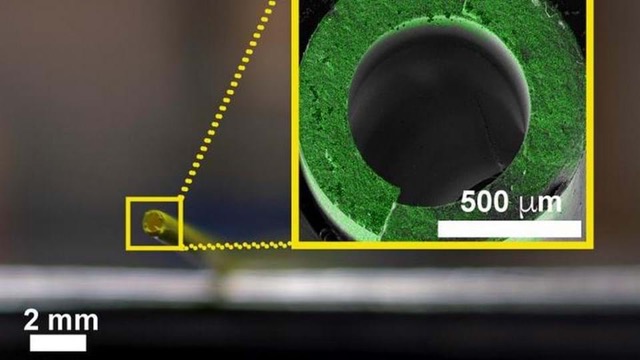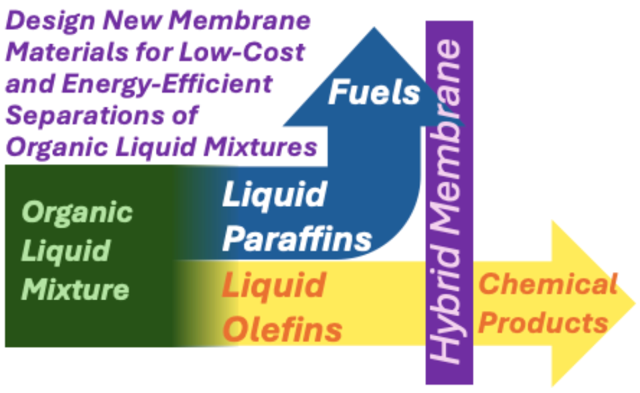
Professor Mark Losego from the School of Materials Science and Engineering (MSE), along with co-principal investigators Martha Grover and Ryan Lively from Chemical and Biomolecular Engineering (ChBE), and Yan Xia from Stanford University, have been awarded a $2 million grant from the National Science Foundation (NSF) through its Designing Materials to Revolutionize and Engineer our Future (DMREF) program. The award comes from NSF’s Division of Chemical, Bioengineering, Environmental, and Transport Systems (CBET).
Purifying chemicals is essential for producing electronics, medicines, fuels, and food. However, separating chemical mixtures into pure components is notoriously energy-intensive and costly. This project aims to change that by developing new membrane materials that perform these separations more efficiently and at lower cost. The team’s research focuses on separating paraffins and olefins, small molecules critical to the chemical industry for producing fuels and plastics. By combining advanced data science with laboratory experiments, the team hopes to accelerate the discovery of high-performance membrane materials and the development of computational tools to predict their properties.
Each team member brings unique expertise. Xia specializes in synthesizing polymers with precisely controlled pore structures and chemical functionalities. Lively is an expert in polymer membranes and their separation performance. Losego focuses on atomic layer infiltration (ALI), a process that infuses polymer membranes with inorganic materials to enhance stability in challenging chemical environments. Grover leads the data science effort, building databases and applying machine learning to predict optimal membrane designs and ALI conditions.

Central to this research effort is converting traditional polymer membranes into unique organic-inorganic hybrid membrane materials, a core focus of Losego’s research portfolio. His motivation stems from scientific curiosity about how blending polymers with inorganic constituents challenges traditional models for material behavior. “These hybrids create opportunities for entirely new materials that require new definitions and rules for understanding their structure and properties,” Losego said. While curiosity drives the research, the team also sees a clear path to real-world application. ALI is fully scalable and compatible with existing membrane manufacturing processes, meaning the technology could be implemented without disrupting current production methods, a true plug-and-play solution.
The NSF DMREF award provides stable funding for at least four years, enabling the team to train Ph.D. students from start to finish. “They will have enough time to learn the skills it takes to define good questions, develop good hypotheses, and design insightful experiments to advance knowledge in a field – without needing to hop from project to project,” said Losego. “They’ll also learn how to communicate across disciplines, an essential skill for advancing science in our fast-paced, highly-connected modern world.”